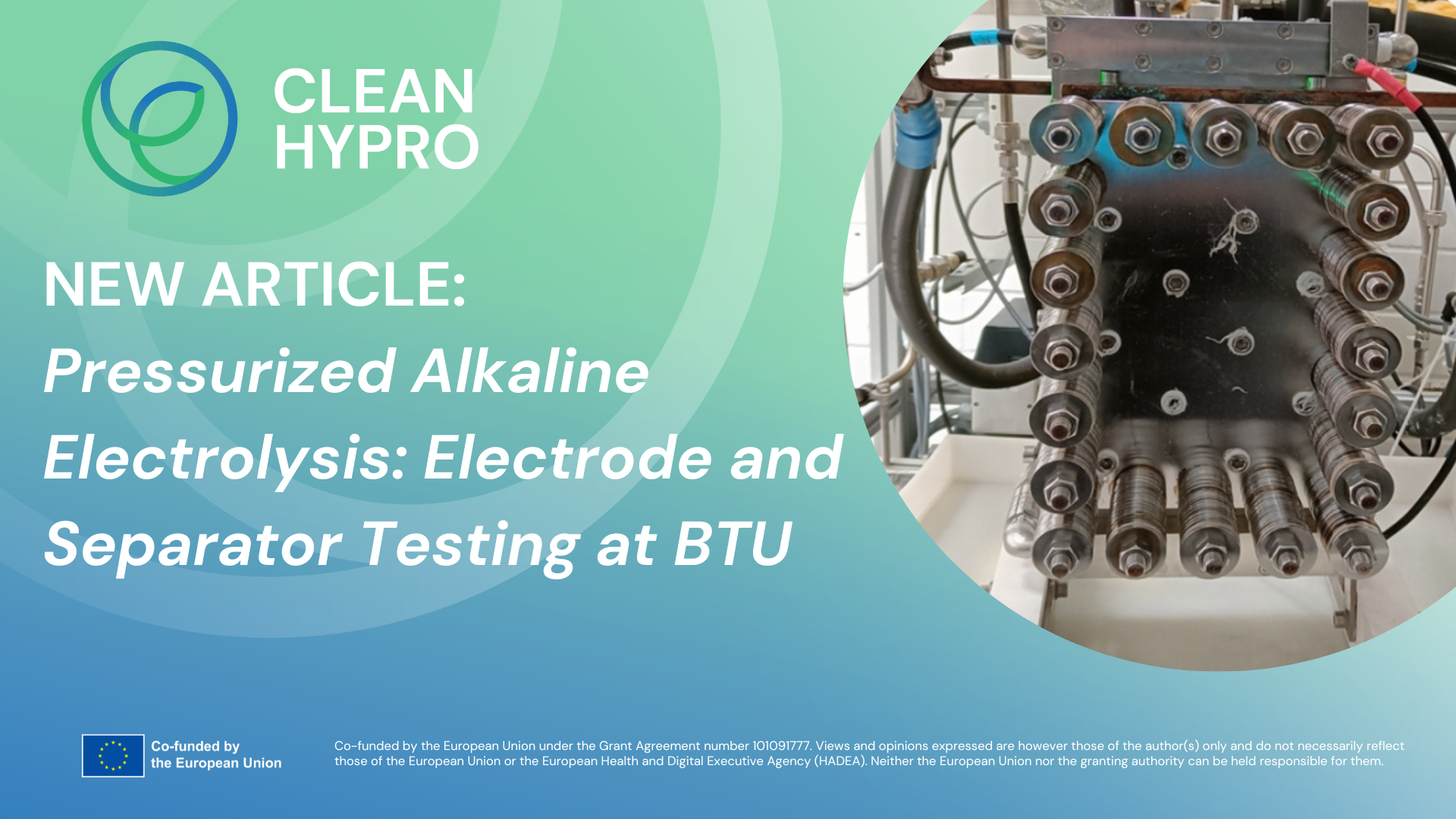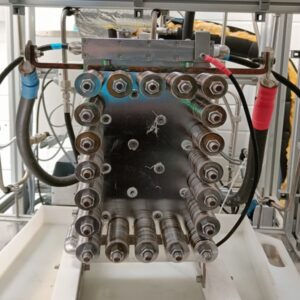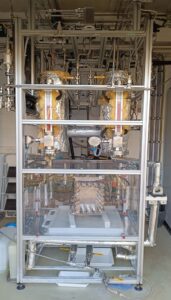
In CLEANHYPRO project News section, we explore groundbreaking advancements in hydrogen production, focusing on our collaboration with some of the most esteemed research institutions in Europe. One of our key highlights, at Brandenburg Technical University (BTU) in Cottbus, is dedicated to alkaline electrolysis. At BTU, we offer specialised testing capabilities that empower industrial partners to evaluate novel electrode materials, separators, and innovative cell designs for pressurised operation. This initiative is vital for advancing the efficiency and effectiveness of hydrogen production technologies.
In CLEANHYPRO, BTU provides a comprehensive testing environment specifically designed for alkaline electrolysis, capable of operating under pressurised conditions. We perform tests on a scale of 360 cm² up to 30 bar hydrogen pressure, allowing us to achieve current densities of 1 A/cm² and even beyond. This capability is essential for assessing the performance of various electrolysis components under realistic operating conditions. Our cutting-edge single-cell test rig is utilised for testing cell components such as electrodes and separators in operando. This innovative setup allows us to study the behavior of gas-bubble-electrolyte flow, providing insights into the dynamics of the electrolysis process. Key operational parameters include:
- Operational temperature: Maximum of 150 °C
- Electrolyte concentration: 30 mass% KOH
- Adjustable volume flow rate in electrolyte circle: Up to 15.0 l/min
- Electrolyte feed mode: Simultaneous feeding on both cathode and anode sides
- Cell flowfield depths: Ranging from 2.25 mm to 31.5 mm
- Distance electrode-separator: Adjustable from quasi zero-gap up to 8 mm
Our in-operando investigations include measuring current density distribution on both the cathode and anode sides, generating polarsation curves, and conducting electrochemical impedance spectroscopy, along with other advanced electrochemical measurement methods. This comprehensive approach allows us to gather critical data that informs the development of more efficient alkaline electrolysis systems.
Future Outlook
Looking ahead, the future of alkaline electrolysis is bright, with significant opportunities on the horizon. Our work at BTU is not only focused on advancing scientific understanding but also on providing services for the industry to improve the performance of alkaline electrolysis components. By enhancing the efficiency of the hydrogen evolution reaction, we aim to contribute to lower hydrogen production costs, making sustainable hydrogen more accessible and economically viable. As the hydrogen economy continues to expand, the demand for efficient electrolysis technologies will only grow. Our research is positioned to respond to this demand, paving the way for innovative solutions that can integrate seamlessly into existing industrial processes. The advancements we make today will help shape the future of clean energy production, supporting global efforts to transition to sustainable energy systems.
Conclusion
In conclusion, the CLEANHYPRO project at BTU represents a significant step forward in the field of alkaline electrolysis and hydrogen production. Through our specialised testing capabilities, we are actively collaborating with industrial partners to evaluate and refine novel electrode and separator materials. Our commitment to improving the efficiency of alkaline electrolysis systems not only enhances hydrogen production but also supports the broader goal of achieving a sustainable energy future. We encourage our readers to stay updated on the latest developments within the CLEANHYPRO project. Together, we can drive innovation and contribute to a cleaner, greener planet through the advancement of hydrogen technologies. Thank you for following our journey!
Authors
- Prof. Dr. Lars Röntzsch
- M.Sc. Krunal Thummar
- M.Sc. Frank Gillung
- M.Sc. Harshit Dhanani

